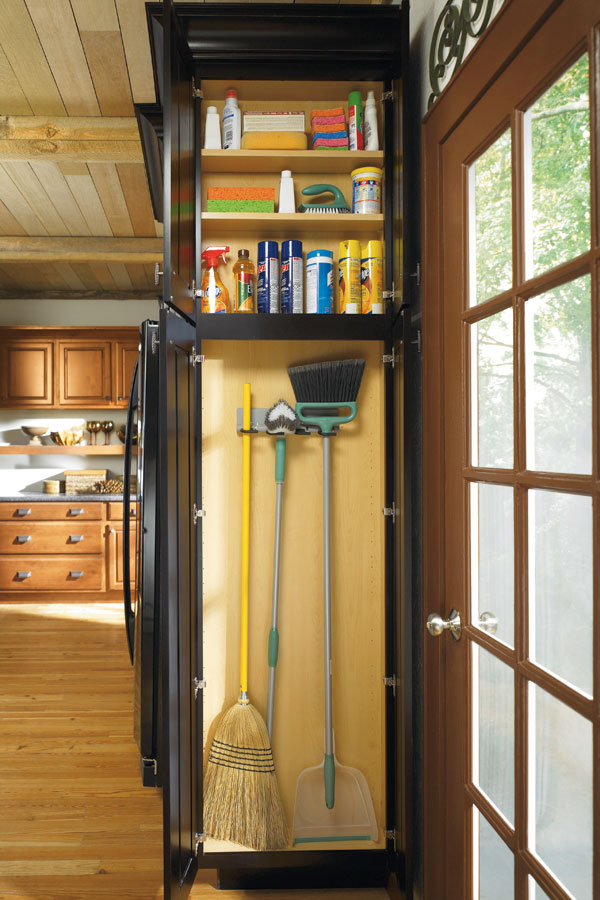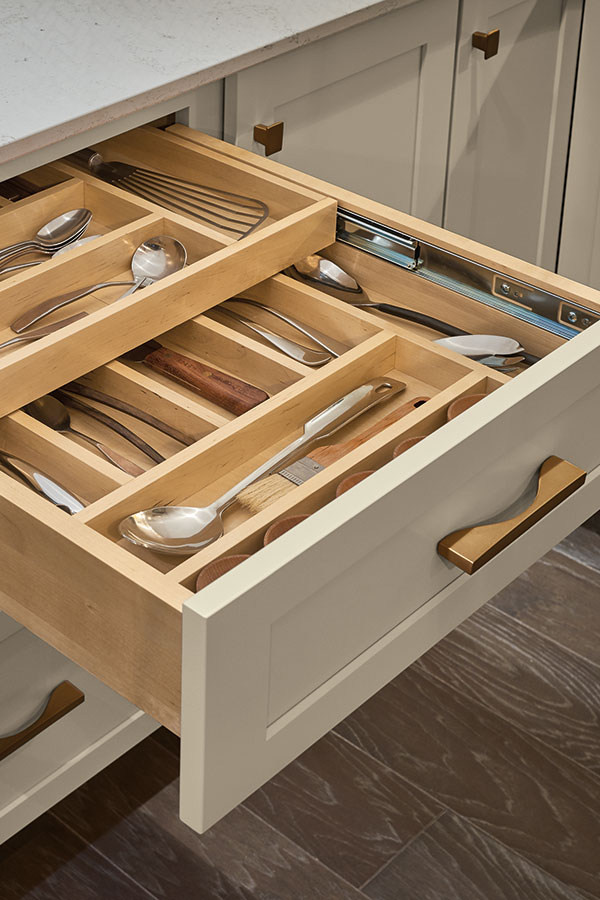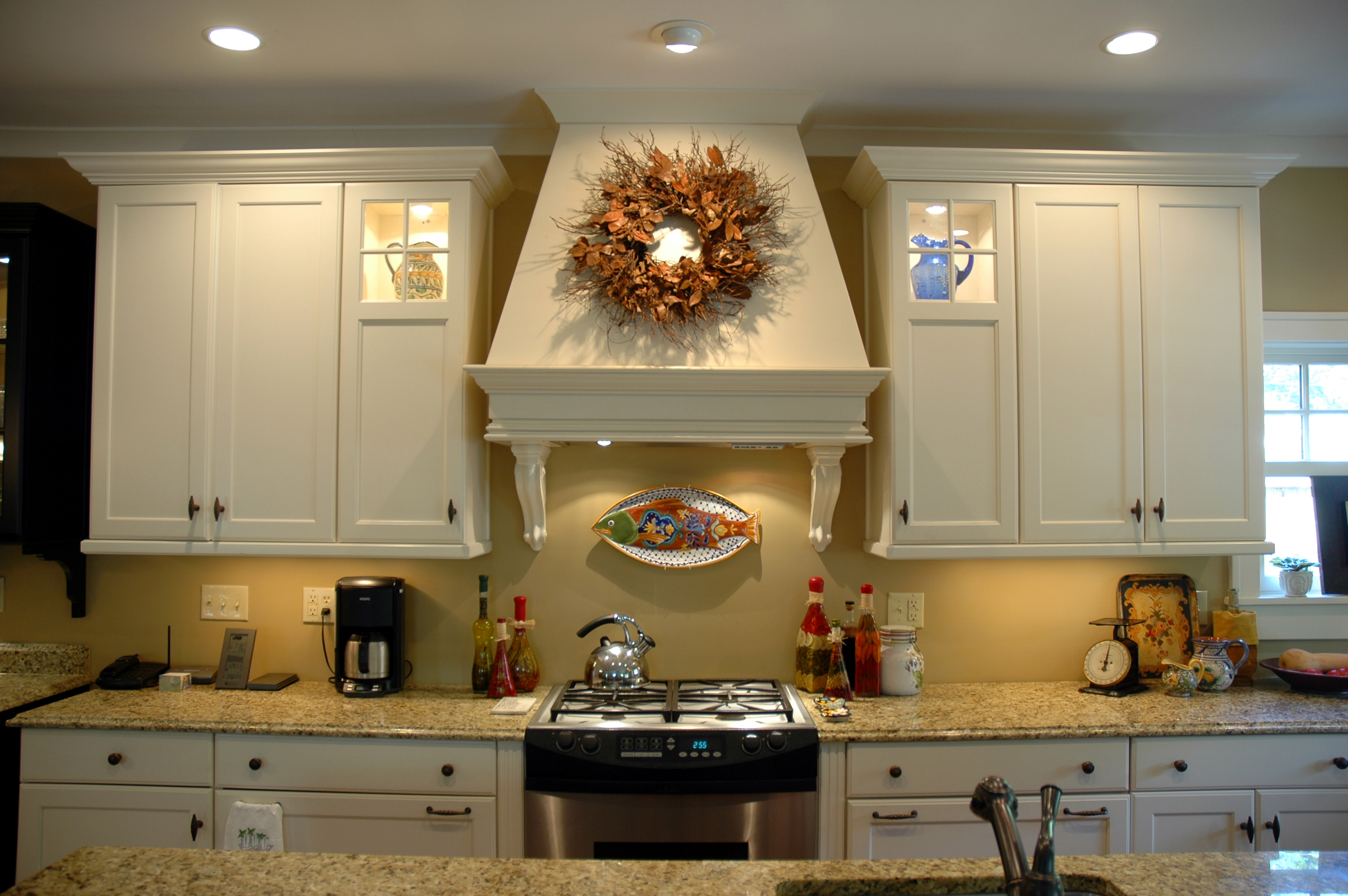You put time and careful thought into selecting your kitchen cabinets, so naturally you want to keep them looking their best. The maintenance of your cabinets does not have to be a difficult or time consuming task. With some regular cleaning and care, you can keep your cabinets looking beautiful for years to come.
Cleaning your wood cabinets can be as simple as wiping the surface with a clean, damp cloth, then drying immediately. If you feel like you need something more than just water to cut through everyday soil and grease, a product such as Murphy's Oil Soap (containing no wax or silicones) is a perfectly acceptable option. However, you may find that a mild dishwashing detergent is just as effective. Wipe clean with a damp cloth and dry thoroughly. Using a dish cloth is not recommended for cleaning your cabinets as it could contain grease or detergent remnants.
If you kitchen cabinets are laminate, thermofoil, or painted, most non-abrasive cleaners are okay, but avoid any cleaner with acetone, ethyl alcohol, or mineral oils as well as any harsh solvents or abrasives as they can be damaging.
Abrasives in cleaning are not the only elements that can cause damage to your cabinets. Water and excess moisture can compromise your cabinet's finish and possibly the wood itself. With that in mind, promptly remove any excess liquid and do not drape dish towels over cabinet doors.
By following these simple tips, your kitchen cabinets can maintain their original beauty and be an investment of which you can be proud for many years.




